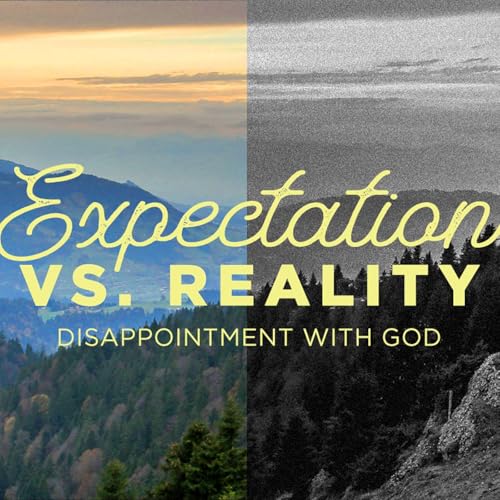Send us a text
EXPECTATION VS. REALITY
Disappointment with God | Part 1
Senior Pastor Keith Stewart
January 4, 2026
Some of the deepest spiritual pain isn’t simply what happens to us—it’s what we thought God would do and didn’t. When expectations collide with reality, disappointment isn’t far behind. This Sunday we’re starting a new series: “Expectation vs. Reality.” We’ll talk honestly about disappointment with God—where it comes from, what it reveals about what we really believe, and how that disappointment can either spiral into discouragement… or become the doorway to deeper faith and healing. If you’re carrying questions, confusion, or a heavy heart—you’re not alone. And you don’t have to pretend.
If you know someone who’s walking through a hard season, feel free to share this with them.”
Discussion Questions
1. Expectations reveal themselves in pain - “Expectations are never apparent until they’re unfulfilled.”
Where in your life right now are unmet expectations creating disappointment—and what might that disappointment be revealing about what you truly believe (about God, yourself, or life)?
2. Stealth expectations - Brené Brown calls them “stealth expectations”—the expectations we don’t even know we have.
What are some “silent contracts” you’ve placed on God or other people (unspoken demands like “You should know,” “This shouldn’t happen,” “I don’t deserve this”)? How have those shaped resentment or shame?
3. The spiral of disappointment - Disappointment can move toward discouragement → disillusionment → depression → defeat.
Where have you seen that progression at work in your own life (or someone close to you)? What are the early warning signs that tell you you’re slipping into that spiral?
4. Sorting cause and blame - The message challenged “blueprint theology” and victim-blaming, and explored the nature of life (broken world), people (sin and freedom), and God (His heart breaks first).
Which of those categories helps you most right now—and which one is hardest for you to accept emotionally?
5. God can handle the truth - The Psalms give us language for honest lament, anger, confusion, and grief—without pretending.
What emotions do you most struggle to bring to God (anger, fear, disappointment, sadness, doubt)? What would it look like this week to pray more like a lament psalm—honest, unfiltered, and trusting?
6. Disorientation as a doorway - Brueggemann’s pattern: orientation → disorientation → reorientation.
Where would you say you are in that cycle right now? What might “reorientation” look like for you—not necessarily a quick fix, but a deeper, truer relationship with God in the middle of your disappointment?
 Feb 23 202643 mins
Feb 23 202643 mins 47 mins
47 mins 49 mins
49 mins 47 mins
47 mins 52 mins
52 mins 49 mins
49 mins 53 mins
53 mins 54 mins
54 mins
